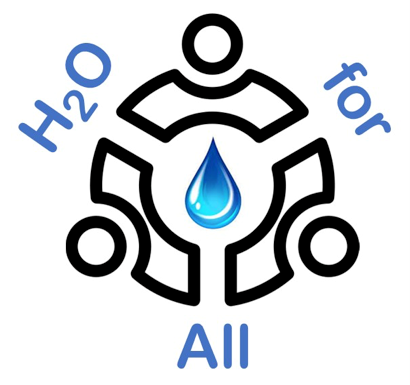The CYENS Center of Excellence is proud to announce the awarding of a new Horizon Europe project H2OforAll “Innovative Integrated Tools and Technologies to Protect and Treat Drinking Water from Disinfection Byproducts (DBPs)” funded by the European Union.
H2OforAll is lead at CYENS by Dr Indrajit Kalita, member of the SuPerWorld MRG (Multidisciplinary Research Group) https://superworld.cyens.org.cy/index.html.
The project aims to ensure safe drinking water by studying the effects of disinfection byproducts (DBPs) on the environment and human health, tracking their presence, and preventing their formation. This is crucial as the quality of drinking water is being negatively impacted by industrialization, agricultural activities, and climate change.
With a total budget of €3,452,700.50, CYENS together with 17 European institutions from 16 EU and Associated countries, will wok during 3 years on developing suitable monitoring systems across drinking network to detect targeted and non-targeted pollutants (DBPs – Disinfection by-products), will study DBPs toxicity and environmental impact, and propose measures to protect drinking water chain
Despite efforts by the European Union to ensure safe drinking water, there are still risks to human and ecosystem health. Pollutants from wastewater treatment plants and agriculture run-off are contaminating drinking water sources, and natural disasters caused by climate change are leading to algal blooms and pathogens in water sources. This requires harsher disinfection methods, such as more intensive chlorination, to meet regulatory requirements for safe drinking water. DBPs are created when chlorine is used to disinfect water and reacts with organic matter in the water. The effects of DBPs at low levels on the environment and human health are not yet fully understood.
More specifically, the objectives of H2OforALL are to
(i) assess the main sources and effects of disinfection byproducts by creating methods for monitoring these compounds and predicting how they spread through drinking water systems.
(ii) create a central database of the presence of disinfection byproducts in Europe.
(iii) evaluate the impact of disinfection byproducts on the environment and human health and suggest ways to protect the entire drinking water supply chain and soil, emphasizing the relationship between soil health and freshwater quality
(iv) propose advanced water disinfection techniques to prevent the formation of disinfection byproducts and treatments to remove them when they cannot be avoided.
(v) evaluate the life cycle and risks of the modern technologies and materials suggested,
(vi) increase awareness among the public and policymakers about disinfection byproducts by providing accurate data for new policy decisions and recommendations.
Further details on the work performed by the SuPerWorld research group in the project can be found at https://superworld.cyens.org.cy/project18.html
Contact us for further information and the opportunity to collaborate with us in the framework of this project and other initiatives!
Other information: https://cordis.europa.eu/project/id/101081963

